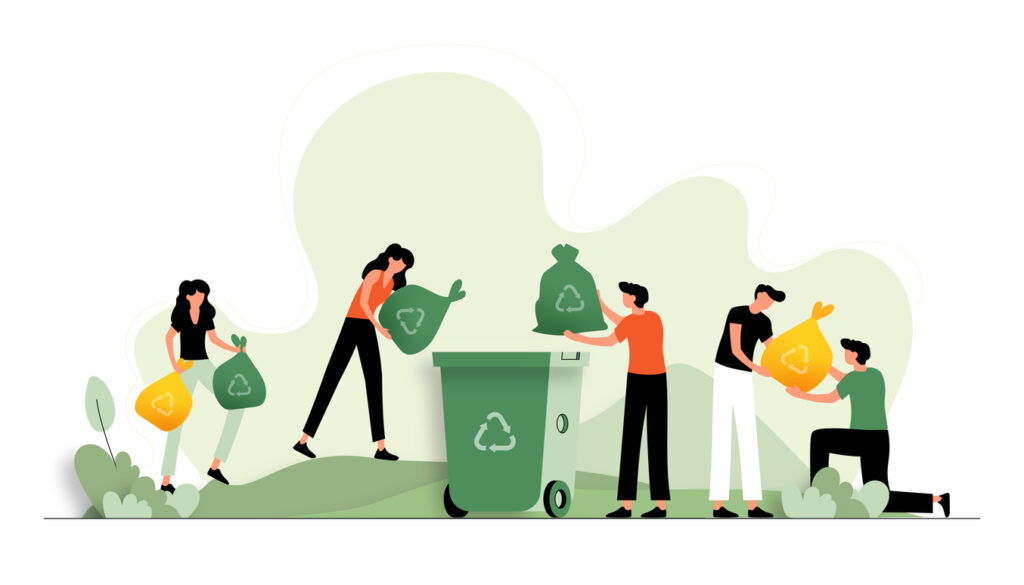Introduction
Many years back I seem to recollect that one of the first new UK environmental laws I had to deal with was the original packaging regulations. These laws have been in place for many years now without much change other than the odd amendment. However, we now have the introduction of new requirements for extended producer responsibility (EPR) for packaging. It looks like (the regime has not been fully fleshed out yet) things will change quite substantially.
The laws covering packaging EPR that have been produced so far have been introduced as separate laws depending on which part of the UK the obligated organisation resides:
- England – The Packaging Waste (Data Reporting) (England) Regulations 2023
- Scotland – Packaging Waste (Data Reporting) (Scotland) Regulations 2023
- Wales – Packaging Waste (Data Reporting) (Wales) Regulations 2023 (currently in draft format)
- Northern Ireland – Packaging Waste (Data Reporting) Regulations (Northern Ireland) 2023
The requirements are pretty much the same as the new regime is being implemented on a UK wide basis with in most cases some minor differences, such as who the regulators are (SEPA in Scotland, Environment Agency in England etc) in each version of the law.
The laws do not apply directly to waste packaging that the organisation directly produces, such as the cardboard they may collect in a skip, rather the packaging that they put onto products, sell or import. These laws implement a principle known as extended producer responsibility, which is trying to change the behaviour of the producer to create a product with a lower environmental impact.
‘Small’ or ‘large’ organisation?
The duties that an organisation must undertake is very much dependent on whether they are classed as being ‘small’ or ‘large’:
Small organisations are defined as
- annual turnover of between £1 million and £2 million and handle or supply more than 25 tonnes of packaged goods or empty packaging in the UK , or
- annual turnover of over £1 million and handle or supply between 25 tonnes and 50 tonnes of packaged goods or empty packaging in the UK).
Large organisations are defined as:
- annual turnover of £2 million or more, and
- responsible for the handling and supplying of more than 50 tonnes of empty or packaged goods in the UK.
If an organisation does not meet the criteria above, then it is not obligated by the data collection and reporting requirements of the regulations and does not have to take any action.
Legal Duties
Now we have established who is obligated, next we need to think about what needs to be done if you are obligated.
For small organisations this is relatively straightforward. Just a word of warning the new regime is likely to pick up some organisations that are not currently regulated environmentally for packaging. Ignorance of the law is no defence! Anyhow, the key requirements for small organisations are to record information on packaging from Jan 2023 (such as weight, packaging type, weight of reusable packaging), create an account and register the organisation from January 2024, pay an annual fee to the environmental regulator from 2024 and report data regarding 2023 amounts etc at the beginning of 2024 (obviously the same requirements will be present every year the laws operate).
For large organisations there is a bit more to do, but for data reporting they must record and report extra data on packaging to the regulator than small producers. Large organisations, however, must also buy credits (known as packaging recovery notes) to represent the packaging they handle as they do under the current regulations covering this area. One major change introduced for data reporting, and will be at some point for the buying of credits, is that obligations will no longer cover the full packaging supply chain rather suppliers, fillers and importers.
Compliance Schemes
As with the current approach an obligated company can join a compliance scheme that will take on its legal responsibility for compliance (as long as the organisation pays the fees and supplies relevant, accurate information). This is advisable as it takes the pain out of what can, for some organisations at least, set some complicated compliance requirements.
Final Note
The introduction of these new laws set some onerous packaging data collection and reporting requirements for obligated UK organisations. ‘Small’ organisations have legal duties that they did not before, whereas there are extra requirements for ‘large’ organisations.
John Binns BSc (Hons), MSc, MIEMA

With over 19 years’ experience working in environment management, John Binns BSc (Hons) MSc MIEMA is an experienced environmental tutor and consultant
